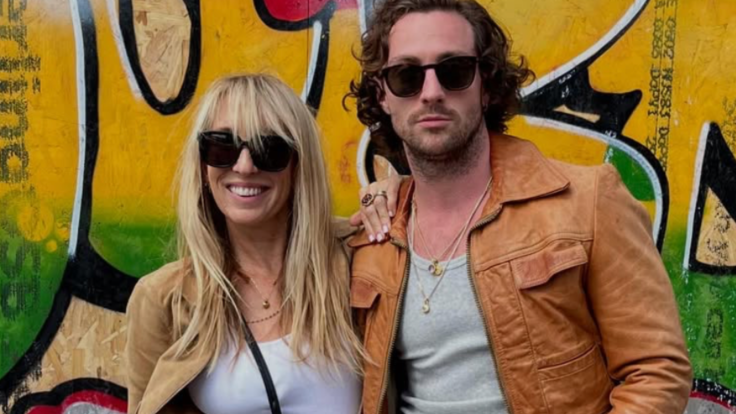'He's Married, So He's Her Type!': Fans Mock Ariana Grande Over Rumours She's Eyeing Aaron Taylor-Johnson
TikTok chatter pairs Grande with Aaron Taylor-Johnson; neither party has confirmed contact, and online claims about his marriage remain unverified.

Ariana Grande's name has resurfaced in a swirl of TikTok gossip that pairs her with Aaron Taylor-Johnson, fuelling a social-media narrative that gleefully reframes the actor's controversial marriage as fodder for fan fantasy.
The rumours, which began circulating on TikTok and were collated by a news outlet on 24 October 2025, suggest a playful and at times malicious online fascination with the idea of Grande 'stealing' Taylor-Johnson.
Neither Grande nor Taylor-Johnson has confirmed any contact or romance, and the viral chatter appears to be fan-driven speculation rather than reporting based on sources close to either star. Still, the episode is revealing: it exposes how fandom, age-gap controversies, and past scandals collide in the modern gossip ecosystem to produce rapid, self-sustaining narratives.
Ariana Grande and The Backdrop of Recent Romance Controversies
Ariana Grande is no stranger to public backlash over her personal life. In March 2024, she spoke candidly on Apple Music's Zane Lowe show about the anxiety and 'hovering dread' she experienced after the public reaction to her relationship with Ethan Slater, which some critics labelled 'homewrecking'.
Grande told Zane Lowe she tried to remain present despite the fallout, an admission that underlines how sustained social-media scrutiny affects artists' private lives. That frankness has not, however, dampened the appetite of online communities to recirculate her name whenever a new celebrity 'ship' seems plausible.
Why Aaron Taylor-Johnson's Marriage Becomes Clickbait
Aaron Taylor-Johnson's marriage to director Sam Taylor-Johnson, a relationship that began when he was in his late teens and she was in her forties, has been a recurrent subject of online debate.
Timelines reported in mainstream outlets note they met on set and became engaged within a year, and that the pair have defended their marriage repeatedly against public scrutiny. Sam has publicly questioned the fascination with their age gap, arguing that its significance is overblown and that their relationship has endured beyond tabloid narratives.

Online, however, a subset of fans interprets that dynamic differently, sometimes casting Sam as a predatory figure and Aaron as a romanticised 'rescued' party tropes that social media then weaponises or satirises.
TikTok, Schadenfreude, and The 'Steal Him' Meme
On TikTok, the notion that a high-profile singer might 'steal' an actor from his wife operates less as a credible claim and more as a fantasy that feeds multiple impulses: schadenfreude towards a perceived establishment figure, fetishisation of youth, and anti-celebrity sentiment directed at older women who date younger men.
Online reports have captured several viral posts where users cheer the imagined scenario, explicitly because they dislike Sam, rather than on any evidence of a relationship between Grande and Taylor-Johnson. That reaction reveals how digital culture often values narrative drama over accuracy, and how fandoms can manufacture stories that serve as cultural catharsis.
@s0fica let’s crowdfund for a tattoo removal #aarontaylorjohnson #freehim
♬ Honeymoonllx Dirty Diana - 𝔥𝔬𝔫𝔢𝔶𝔪𝔬𝔬𝔫
It is important to stress that accusations of 'grooming' that circulate on social platforms are social-media constructions, not legal findings. Coverage and commentary in outlets such as Glamour and E! have documented the timeline and the public reaction to the marriage, and have reported on how both Aaron and Sam respond to criticism, but none substitute for substantiated fact.
Beneath the memes and viral clips lies a more sobering cultural story. The impulse to 'root' for a celebrity to be 'taken' from a spouse reveals how online audiences project moral narratives onto private lives: the younger man as victim, the older woman as villain, the famous singer as a corrective force. That impulse is gendered, ageist, and often cruel; it distorts the complexities of human relationships into binary entertainment for strangers.
Whether framed as a joke, a wish-fulfillment meme, or an act of malice, the online circulation of this narrative says far more about our culture's appetite for scandal than it does about the private lives of the individuals involved.
© Copyright IBTimes 2025. All rights reserved.




















